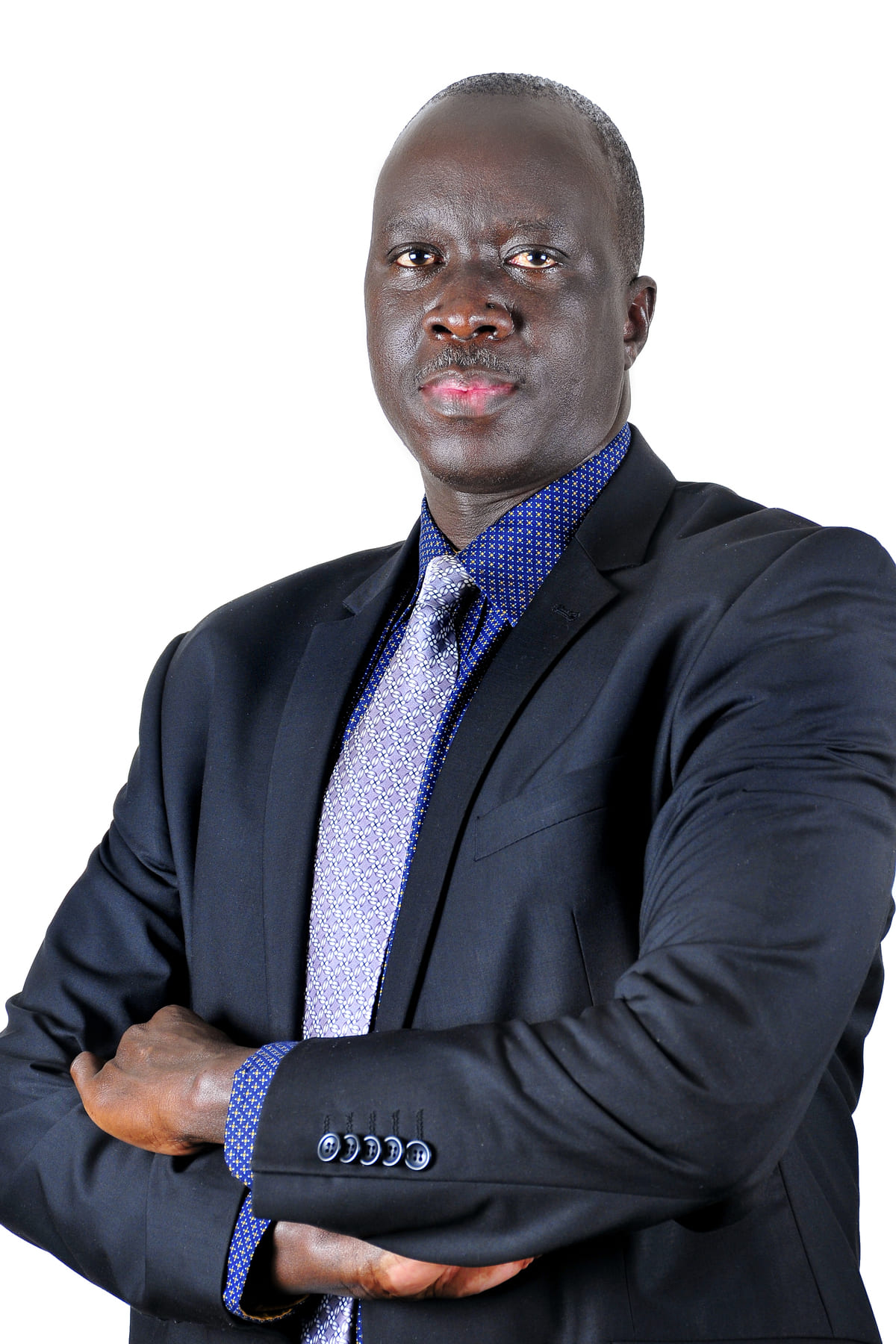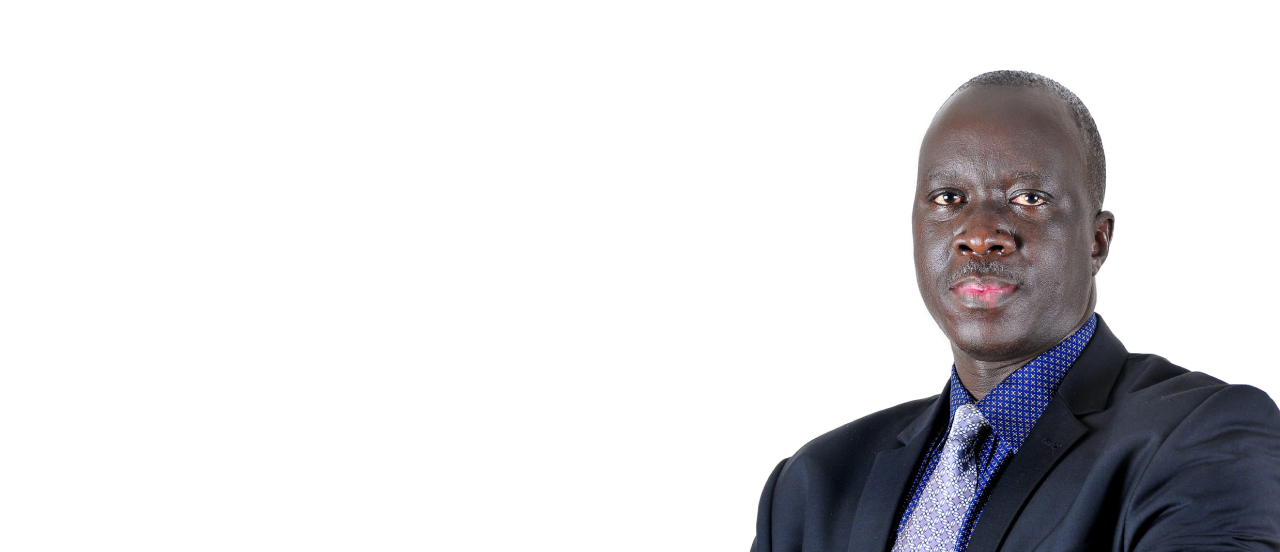
Meet the team: An interview with Daniel Ogwang
Daniel Ogwang Abwa is Programs Director for IIRR Uganda. Having worked with both public sector (Uganda’s Ministry of Local Government) and private sector development companies, Daniel has more than 23 years of practical work experience in administration, project management, project coordination, programs management and organizational management.
–
Daniel holds a Master’s Degree of Business Administration (MBA) and a Bachelor’s Degree in Public Administration, majoring in Human Resources Management. He is also trained in many aspects of management including Strategic Human Resources Management, Performance Management in Organizations, Project Planning and Management, and Responsible Finance for Smallholder Agriculture. He is a Certified Trainer for ILO-Start and Improve Your Business (SIYB) as well as a Financial Literacy Trainer of Trainees. Daniel brings to his role expertise in Business Development Services and Financial Inclusion.
What is your role at IIRR and how long have you been with the organization?
I am the IIRR Uganda Programs Director, a position I have held since I joined the organization in June 2017. My key responsibilities include oversight of program operations, supporting the implementation of current programs, and development of new initiatives. I also provide technical guidance and managerial support to the different Project Managers and support effective strategic monitoring and evaluation of program interventions.
What do you like most about working at IIRR?
As a Social Worker, I am passionate about community empowerment and participation in development. As such, IIRR’s people centered approach – which is summarized in the IIRR credo – is what I always associate with my current role. As I continue to grow as a professional, I would like to carry this approach as my strategy and share it with others who are implementing development work in rural settings.
What does a typical day look like for you and what are you currently working on?
When I start my normal day, my thoughts are about how to support staff under my supervision and especially in ensuring that field activities are being implemented as planned. Most of the projects that IIRR Uganda are implementing at the moment are funded by donors, including the Government of Uganda Ministries. One of the key challenges with such projects is ensuring that the implementation of activities continues even if there are delays in receiving committed project funds.
Currently, we are working on the development of two project proposals and at the same time doing rapid assessment for the implementation of “Karamoja Greenbelt’s Women Led-Large Scale farming for Cereals, Legumes and Oilseed” where IIRR signed a Responsible Party Agreement (RPA) with United Nations Development Program (UNDP) to facilitate immediate land opening and planting of over 1,400 acres in the Karamoja region. The region essentially has only one planting season, and although the country is receiving enough rainfall at the moment, it may subside by June. This means land opening and planting has to be done and completed no later than the second week of May. We are therefore trying to ensure that we access and deploy enough tractors to clear all 1,400 acres within that timeline. This also requires us to have adequate and ready funds if we are to hire tractors and facilitate all the processes in a timely manner.
What are the main challenges you are seeing in your community/region today?
One main challenge facing the community up to now is a charity mindset, where community members expect to receive some sort of handout in order for them to participate in an activity. Therefore, there is still much work to be done about changing this traditional mindset to help communities see the many benefits of participating in activities for long-term stability and success.
Across the country, communities are faced with the effects of climate change which are greatly affecting productivity and production of agricultural products, yet most of our target communities rely on agriculture as the main source for their livelihoods. IIRR – in partnership with other organizations including GiZ, FAO, UNDP, as well as the Ministry of Agriculture, Animal Industries and Fisheries (MAAIF) – are upscaling climate smart agriculture (CSA) as a remedy to the effects of climate change.
What impact do you see IIRR is creating in Uganda?
IIRR’s approach of empowering smallholder farming communities to take an active part in development is not only a strategic effort towards buy-in and ownership but a sustainable effort that empowers the community to appreciate and understand their fundamental roles for greater impact. Changing community lifestyle and improving quality of living is a gradual process that requires holistic interventions including creation of partnership with diverse stakeholders, use of community driven development approaches and utilization of knowledge management for strategic interventions. Such philosophy is among the strong tools that has enabled IIRR to penetrate and strengthen their operations in Uganda.
Effectively, where IIRR has implemented activities, there is remarkable change in terms of adoption of best practices. This has also translated into increased cases of economic empowerment where over 70% of supported communities are having greater access to finance to promote their economic activities as well as access to more services from other partners as a result of strategic linkages created by IIRR.
If you could choose anyone, who would you pick as your mentor, and why?
My mentor is by far my late father (The Late Charles Boniface Abwa). He was an Agricultural Officer, and he would always remind us of the importance of teamwork, being innovative and considering challenges as opportunities to make you design better solutions that not only address the current challenges being faced but also offer an opportunity to be creative. One thing I learnt from him is the value of Human Resources. When I link it to organizational management, I am still convinced that humans are the most important resource any organization can bank on. An organization may have enough financial resources and state-of-the-art technology, but those still require human resources to manage and operate them. There is therefore a need for more organizations to invest in the development of their human capital alongside other resources.
What is your motto or personal mantra?
In all perspectives, humans are the most critical resource an organization can rely on for its performance and therefore, “An organization is as good as the people within it” is my motto. When an organization has qualified, motivated and dedicated staff, performance is at its best and measurable. Based on that, I am inspired to work with and lead a team that is well-motivated and committed and that IIRR can rely on to achieve its objectives. When staff are motivated, they become committed and self-supervised and that also translates to a high level of organizational performance.
What are your core values, and how do they tie into your work with IIRR?
Teamwork: I believe and recognize the fact that each individual has unique talents that other people may not have. Working in a team enables the organization to benefit from such unique talents that different people have. Therefore, every person must be treated with dignity irrespective of the position they hold, because when such an individual performs his/her duties, another person will have a conducive environment to perform his/her roles as well. At IIRR we always do our best to ensure that team work is promoted and those with unique talent are identified and assigned duties that match their talent.
Work in diversity: Organizations bring in different people with different backgrounds and different characters. I enjoy working with diverse people, and my strategy to manage is to first understand every individual, appreciate that everyone has unique character and embrace them.
Partnership: Throughout my career, I have learnt that an organization can only succeed well if it identifies the right partners with similar objectives and work strategies for a common goal. I therefore believe in partnership by “Choice” and not by “Chance”. Partnership allows organizations to leverage on the strength of one other and utilizes each other’s comparative advantage to achieve the common goal.




